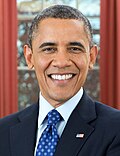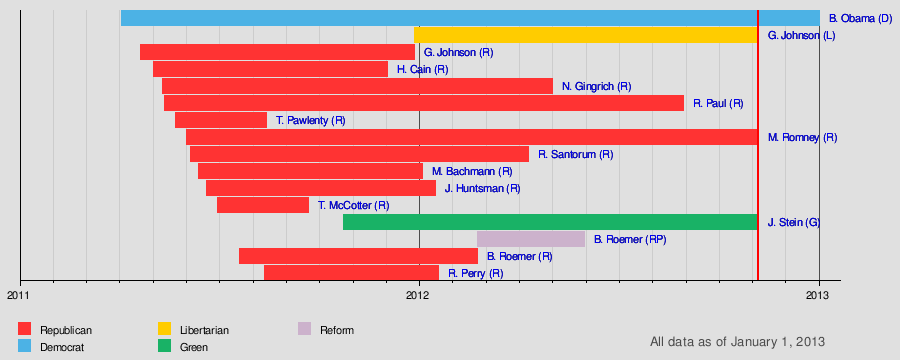| ||
| | |
|---|---|
| Democratic Party | |
| Republican Party | |
| Minor parties | |
| Related races | |
| |
The following is a timeline of major events leading up to the United States presidential election of 2012. The election was the 57th quadrennial United States presidential election held on November 6, 2012.
Contents
- 2009
- October
- 2010
- January
- November
- December
- 2011
- January 2
- February
- March
- April
- May
- June
- July
- August
- September
- October 2
- November 2
- December 2
- 2012
- January 3
- February 2
- March 2
- April 2
- May 2
- June 2
- July 2
- August 2
- September 2
- October 3
- November 3
- December 3
- 2013
- January 4
- Election campaign 2012 candidate participation timeline
- See also
- References
- External links
Republican Party ticket




